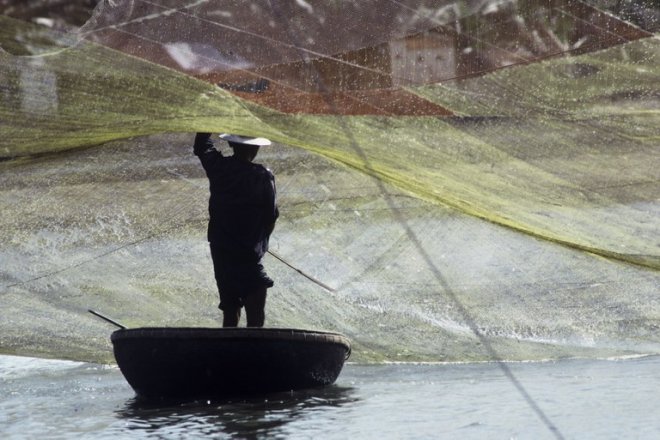Four months on, Lao farmers awaiting Chinese developer compensation
The owners of a Chinese banana farm in southern Laos’ Attapeu province are making promises they can’t keep, and in some cases outright ignoring the interests of area residents, clearing locally owned land and skipping out on compensation payments, affected villagers say.The frustration experienced by the four cassava farming families in Attapeu’s Sanamxay district, which borders Cambodia to the south, is unfortunately common in Laos, where residents offered compensation by developers for their land are rarely made whole and, in some cases, never will be.
A Chinese banana farm began taking over their land in June but hasn’t paid them anything, they said, speaking to RFA Lao on condition of anonymity, citing fear of reprisal.
“They have built roads through our cassava fields, using bulldozers to dig up our land without permission,” said one of the villagers impacted by the development. “The Chinese investors have said they will take all of our land, even if we don’t agree. We want compensation before we hand it all over.”
According to the villager, his and three other families impacted by the development have sent letters to relevant authorities in Sanamxay district, urging them to resolve the compensation dispute. But no one from either the government or the Chinese banana farm have come to discuss terms with them.
A second villager confirmed that they had received no help since the clearing began four months ago.
“They already began clearing our land – tearing the cassava plants out of the fields,” he said. “We’ve sent letters to the district authorities and the People’s Council, but nothing has been done.”
A third villager who lost land to the Chinese farm told RFA that before the owners began clearing their land, they promised to pay them 150 million kip (US$7,350) per hectare (2.5 acres), but they never honored the arrangement.
“At first, they came to negotiate with us and said they would pay compensation, but they simply cleared our land without giving us anything,” he said.
Growing Chinese banana demand
Attempts by RFA to contact officials from the ministry of agriculture and forestry and other related government agencies about the land dispute went unanswered.
But an official from the ministry’s labor unit, who declined to be named because he was not authorized to speak with the media, said that there are currently many Chinese investors looking for land to farm bananas for export to China.
He said that while some are granted concessions by the government, some have “taken land from villagers used to grow cassava without providing compensation.”
The official said he was unaware of the situation facing the four families in Sanamxay.
Residents of land close to Chinese banana farms in Sanamxay described a situation similar to what the official told RFA.
They said an increasing number of Chinese companies are investing in banana farms in the area through “government concessions, renting land from villagers, or simply encroaching on land without providing compensation.” While authorities have investigated some cases, most go unaddressed, they added.
A Laos-based social commentator told RFA that Chinese banana farms have been a growing problem in Sanamxay in recent years – taking land without compensation and polluting area waterways with chemical fertilizers that have made local communities sick.
Much of Laos’s recent economic growth has been generated through land concessions to China, Thailand, and Vietnam to exploit natural resources including timber, agricultural products, minerals, and energy.
But the policies have sparked friction over cases of environmental pollution and land taken without proper compensation.
Lao villagers affected by land grabs often fear to speak out publicly over their concerns because they fear official retribution.
In one such case in June 2022, a Chinese developer used a bulldozer to clear 300 hectares (740 acres) of villagers’ land in Sanamxay’s Nong Hin village without permission and used it to plant bananas and durian. When two villagers protested, employees of the Chinese farm beat the men and threatened to shoot them if they continued to create problems.
Translated by Sidney Khotpanya for RFA Lao service, Edited by Joshua Lipes and Malcolm Foster.
[圖擷取自網路,如有疑問請私訊]
|
本篇 |
不想錯過? 請追蹤FB專頁! |
| 喜歡這篇嗎?快分享吧! |
相關文章
AsianNewsCast






















